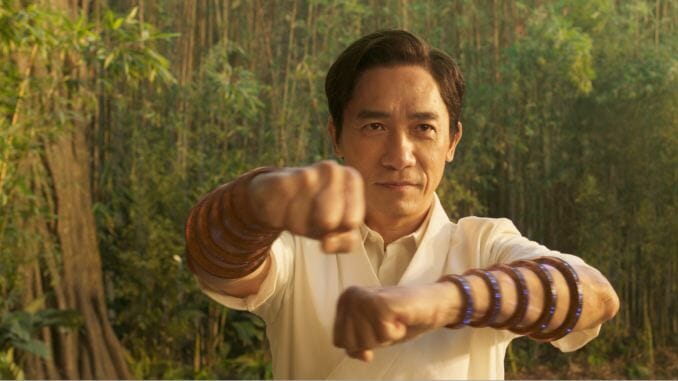Shang-Chi and the Legend of the Ten Rings‘ Bland Origin Story Must Jump through Too Many Hoops

It’s been two and a half years since a Marvel film devoted itself to a new superhero’s origins. Captain Marvel’s place as a pre-Endgame piece of stage-setting eclipsed its abilities and ambitions as a standalone story; nearly everything in Shang-Chi and the Legend of the Ten Rings overshadows its post-Endgame newcomer. Delayed by and filmed throughout the pandemic, filmmaker Destin Daniel Cretton’s sprawling and intangible martial arts journey wears its rich influences openly, treats its supporting cast reverently and dilutes it all predictably. Despite hints of the interpersonal nuance Cretton brought to his indie work (best seen in 2013’s Short Term 12) lurking in a bulky script, recognizable elements of Asian action cinema struggling for breath under countless layers of digital sediment and one of our greatest living actors working wonders as its villain, Shang-Chi is as bland and busy as its title.
Poor Simu Liu never had a chance. Every character is more interesting than the actor’s Shang-Chi, who’s a straight man foil to the world around him. He is the sweet-faced stoic to Awkwafina’s Katy (his rambling, riffing, spotlight-stealing comic relief pal) and—as is implied through countless flashbacks and, naturally, a long opening Legend—the allegedly brooding center of the film’s themes of identity and inheritance. But the San Franciscan valet with the heart of gold, single-digit body fat, and secret, mythical family history has a personality akin to circling a lot looking for parking. He is a vehicle for plot to drive around, picking up more interesting characters (Ben Kingsley’s faux Mandarin; Benedict Wong’s Wong) along its extended roadtrip.
-

-

-

-

-

-

-

-

-

-

-

-

-

-

-

-

-

-

-

-

-

-

-

-

-

-

-

-

-

-

-

-

-

-

-

-

-

-

-

-








































